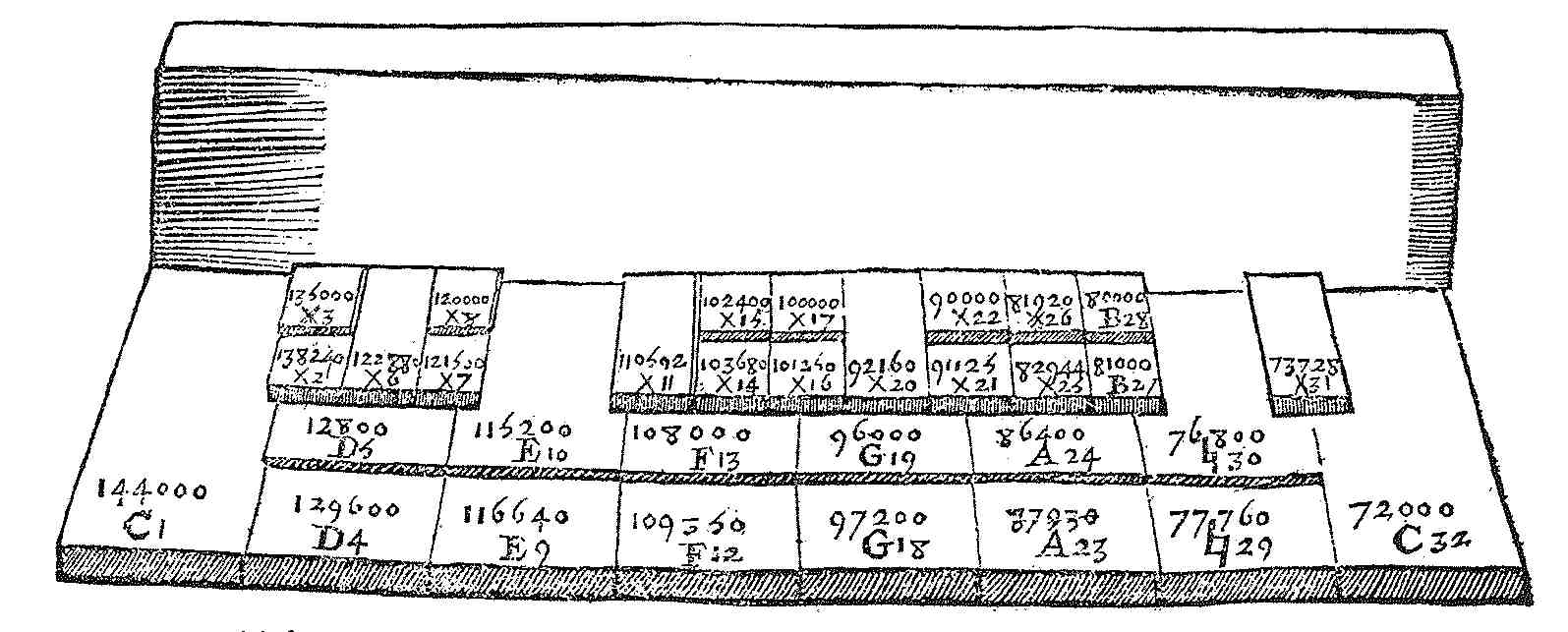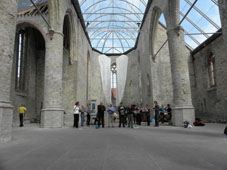HIP hip
May 2010
"Nostalgia is not what it used to be." - Simone Signoret
Although often sentimental about our own memories, we seem to view the past as somehow inferior - quaint innocence -, perhaps forgetting that progress from the ingenuity and resourcefulness of previous generations has led to the luxuries and necessities of the present-day.
Letting go of such attitudes is an ongoing process in Historically Informed Performance (HIP): We might accept and admire the techniques of visual artists and the old-fashioned language of authors but, in spite of our respect for the composers' skills, there is the temptation to apply late 20th century aesthetics and technological "improvements" to the performance of music from 300 years ago because "they would have done". "They", however, did not and could not have done. Through the interconnectedness of things, such compromises inevitably lead to further compromises, making a true understanding ever more distant. This is why, with Barokensemble De Swaen, we make as few compromises as possible in our choice of instruments and set-ups; continuously research and reassess sources and find solutions by "starting again". How else?
It is no surprise that money was motivation in the 18th century. Graupner, Endler, Telemann and particularly Handel enjoyed privileged and highly-paid positions in noble courts. J.S. Bach’s appointment in Leipzig was relatively badly-paid and therefore less-desirable. To our benefit, however "inferior" this job was, JSB was not answerable to the possibly questionable tastes of a nobleman but only to himself and the "Highest" authority - thus, in a creative sense, relatively free.
Since then, times and circumstances have changed for many performers. De Swaen relies a great deal on the support of you, our valued audience and the Friends of De Swaen, to continue our essential and influential work. Please feel as noble as you like when donating generously after this concert.

In last month’s HIPhip, you would have read about many composers re-arranging existing works. This is not all: -
J.S. Bach would also take an already "complete" piece and somehow find space to weave new, self-contained parts into its tapestry, rather than simply doubling existing ones. For instance, for the Sinfonia of BWV 174, the first movement of the third Brandenburg Concerto (BWV 1048), already with ten parts, received a further three oboes and two horns that sound as though they have always been there. Perhaps even more astounding is the opening chorus of Cantata BWV 110: With the alteration of only six bars, a whole chorus was superimposed onto the opening movement of the 4th Orchestral Suite (BWV1069).
Today's "new" premiere, Sneeuw, by Hoite Pruiskma (set to text by Jelle Draijer), combines this tradition of re-working with a more modern compositional approach. Hoite writes: "Snow is, in short:
A composition in which we as listeners sneak into the thoughts of someone who is walking in the snow and connecting their thoughts with fragments of Bach’s Mattheus Passion. The music is written in a contemporary musical language for Baroque instruments with their specific sounds and styles."
Mike Diprose
May 2010
Nederlandse samenvatting
We lijken het verleden soms als inferieur en aandoenlijk te zien. We accepteren en bewonderen de techniek van beeldend kunstenaars en de ouderwetse taal van schrijvers, maar ondanks het respect voor wat de componisten konden, blijkt het verleidelijk te zijn om laat-20e-eeuwse stijl-ideeën en technologische "verbeteringen" toe te passen op de muziek van 300 jaar geleden, omdat "ze het toen zo gedaan zouden hebben als..."
Met De Swaen maken we zo min mogelijk compromissen in de keus van instrumenten, we blijven onderzoeken en vragen stellen en vinden oplossingen door "opnieuw te beginnen" vanuit hoe ze het toen deden, niet hoe ze het gedaan zouden hebben als...
In de18e eeuw speelde geld -net als nu- een belangrijke rol. Graupner, Endler, Telemann en met name Handel hadden goed betalende posities aan adellijke hoven. J.S. Bach’s aanstelling in Leipzig was relatief slecht betaald. Voor ons nu echter een voordeel: hij hoefde niet te voldoen aan de eisen van een edelman -met een wellicht dubieuze smaak- maar slechts aan die van hemzelf en de "Hoogste" autoriteit- in creatieve zin was hij dus relatief vrij.
In de HIPhip van vorige maand kon u lezen over hoe componisten delen van composities van zichzelf en anderen hergebruikten.
De première van vandaag Sneeuw van Hoite Pruiksma is een voorbeeld van een werk waarin flarden van een andere compositie (de Matthaus Passion van J.S. Bach) op een hedendaagse manier zijn verwerkt.
Meer over Sneeuw vindt u HIER.
|
